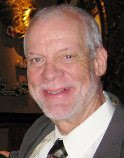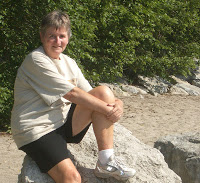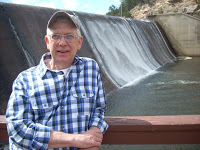As a college student I learned a distinction between sympathy and empathy. The contrast arises from the two different Greek words. It also is influenced by psychoanalytic theory and practice. In most discussions empathy is considered to be more finely tuned than sympathy. As a minister I was called upon to do many tasks including hospital and care-home calls on members of the church. I did this work thoughtfully and, I believe, with sympathy, and on good days a measure of empathy! People liked my visits and humor. We laughed and prayed together.
In the church work I was motivated as much by duty as by sympathy and empathy. And I was appropriately trained to be helpful with patients and shut-ins. Apparently I provided sufficient care in my communications and mainly in the fact I showed up at all. Perhaps that is the way of it when one has too many people to serve.
The caring emotion for me occurred most clearly when I was in a hospital room with someone having a difficult time. I also noticed how my empathy was amplified when I liked the person, occasions in which other emotions and feelings added to what I was experiencing, for instance, the time an elder woman introduced me to her nephew when she and I were the only persons present made me wonder at the drugs the medics had given her for pain and the need to suppress a feeling of humor at the situation. (I was fine; she got better.)
I visited a good looking single young man who had a stubborn bone infection. I know that a sexual attraction increased my sense of his pathos. It alerted me to how others might prize him emotionally and their sense of fear surrounding his illness. My empathy extended to his family and friends. He eventually did recover after receiving loads of highly potent antibiotics.
Several times I visited an elder woman, very worldly and professional, with a bright personality and deep determination to recover from a major stroke. One day several weeks into treatment she appeared to have made a turn for the better. I was excited on her behalf and expressed how much better she looked. She tempered my enthusiasm, though, by saying, “Phillip, I finally felt up to putting on my makeup.” We laughed together. I said, “You are getting better.”
My empathy was sincere in all these cases yet certainly amplified by other emotions. And in all these visits I was present because I was a minister from their church.
One inactive church member, a real sot, was driving home from the VFW on an icy night and being rather drunk, crashed his car into the west entry to the church building. I didn’t see the car but did see the damage to the steps and more. The Sr. Minister, Jack, wasn’t sure what to do. I volunteered, “I’ll go to the hospital and see how he is.” I’d never met the man and really didn’t know much about alcohol or alcoholism. I went in simply as a visiting minister. “So they sent you,” he said eyes twinkling.
“Yeah. It’s my day to make the rounds,” I said to underplay the situation. I asked how he was doing. He said, “Fine,” and seemed totally sober at that point, perhaps from the trauma. I realized he might even feel ill at ease and said, “You just rest and recover.” I shook his hand, smiled saying, “It’s a pleasure to meet you, and don’t worry about the church stuff.” I may have visited him later, I have no recollection. I never saw him outside the hospital, certainly not in church. His collision with the front steps was no conversion.
Was I sympathetic or empathetic? I have no real idea. Years later as a massage therapist I felt empathy with most of my clients in their pains and diseases but not always in their gripes and in some of their expressed needs. I did smile often and sometimes cried. I mostly tried to deliver an effective massage and must have done that pretty well. Many of my clients came to me for over fourteen years. Perhaps I was sufficiently empathetic. And my real hope is that I was never just plain old pathetic in these contacts.
© 27 November 2017
About the Author
Phillip Hoyle lives in Denver and spends his time writing, painting, and socializing. In general he keeps busy with groups of writers and artists. Following thirty-two years in church work and fifteen in a therapeutic massage practice, he now focuses on creating beauty. He volunteers at The Center leading the SAGE program “Telling Your Story.”
He also blogs at artandmorebyphilhoyle.blogspot.com




